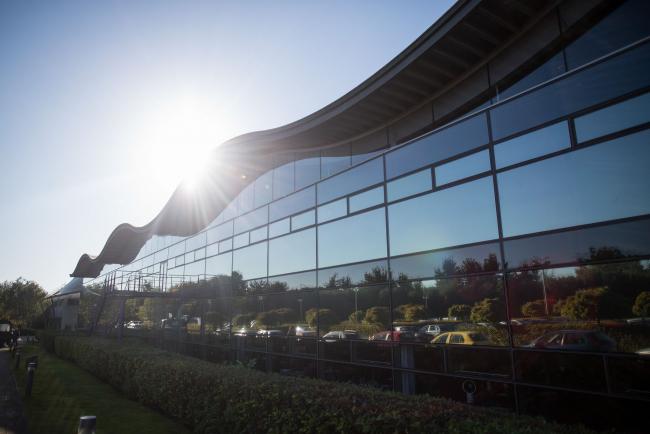(Bloomberg) -- Dyson Ltd.’s sudden decision to scrap its $2.5 billion electric-vehicle ambitions is the latest reality check creeping into the once soaring EV industry.
The famed maker of vacuum cleaners and hair dryers couldn’t find a way of making the project commercially viable, billionaire James Dyson said in a letter to staff Thursday. The announcement came about two years after the company first disclosed its plans to jump into car manufacturing.
Dyson represents one of the most high-profile players to pull out of a sector that’s attracted hundreds of start-ups in recent years seeking to become the next Tesla (NASDAQ:TSLA) Inc. But there are mounting signs that the bubble is bursting as China scales back handouts in the sector and competition heats up. Sanford C. Bernstein estimates that global EV sales fell for the first time ever in July and dropped by a record 23% in August.
“Tesla’s future remains uncertain. Almost all the EV start-ups trying to follow look challenged,” Bernstein analysts, including Max Warburton and Robin Zhu, said in a report that cited the Dyson decision as a worrisome development in the industry. “Most of these start-ups will likely fold. The truth is barriers to entry in autos remain high. Making cars is hard. The move to EVs will be expensive.”
Take the case of China’s NIO Inc., one of the most prominent electric-car makers in a country that makes about half of the world’s EVs. Last month it reported a wider-than-expected quarterly loss, leading the stock to tumble to a record low and prompting analysts to openly question the company’s viability. The shares jumped on Tuesday after NIO reported third-quarter deliveries exceeded the company’s forecast, but the stock has since erased all those gains.
Elsewhere in China, Lifan Industry Group Co. and Zotye Automobile Co. have had to issue statements denying speculation that they’re planning to file for bankruptcy, though the former conceded it’s under liquidity pressure.
The competition is also getting tougher. Besides Tesla (NASDAQ:TSLA), traditional automakers such as General Motors Co (NYSE:GM). and Volkswagen (DE:VOWG_p) AG are throwing massive resources into electrification. VW has vowed a $33 billion push to bring battery-powered autos to the masses. Apple Inc (NASDAQ:AAPL). has had an automotive project since about 2016, although it is said to have scaled back its ambitions.
There are growing concerns that the ample supply of cheap funding for new-age carmakers is about to dry up, according to Bernstein.
As to Dyson, the company said it plans to continue its 2.5 billion-pound ($3.1 billion) investment program into new technology, and will concentrate on manufacturing solid-state batteries and other technologies including machine learning and robotics.
“Singapore will play an important role in Dyson’s growth plans,” Tan Kong Hwee, assistant managing director at Singapore’s Economic Development Board, said in an emailed statement Friday. Despite Dyson’s decision, Singapore “remains interested in advanced manufacturing activities, including for EVs,” he said.
Experts had questioned the company’s costly plans to build an electric car plant in Singapore, where average salaries are among the highest in the world. Ford Motor (NYSE:F) Co. closed its factory in the city-state about 40 years ago, effectively ending car production on the island.
“If everybody else is building a plant in China at a fraction of the cost in terms of labor, it didn’t make a lot of sense for anybody to build that size of a manufacturing facility over there,” said Steve Man, an analyst at Bloomberg Intelligence in Hong Kong. “I hope Singapore wasn’t expecting much from this.”
Still, Singapore has much riding on Dyson in its efforts to attract start-ups and advanced technology companies. Dyson became one of the biggest global industry names to ever relocate there.
There’s another sector Dyson is looking to invest in Singapore. The family office of James Dyson has incorporated in the city state and is in the process of hiring IT and finance-service staff, according to job advertisements posted on Dyson’s website. The family office was established in 2013 and employs around 55 people globally.
“It would have been nice to have but the reality is OK, it’s not going to work let’s look at something else,” said Song Seng Wun, an economist at CIMB Private Banking in Singapore. “It’s still about making money.”
